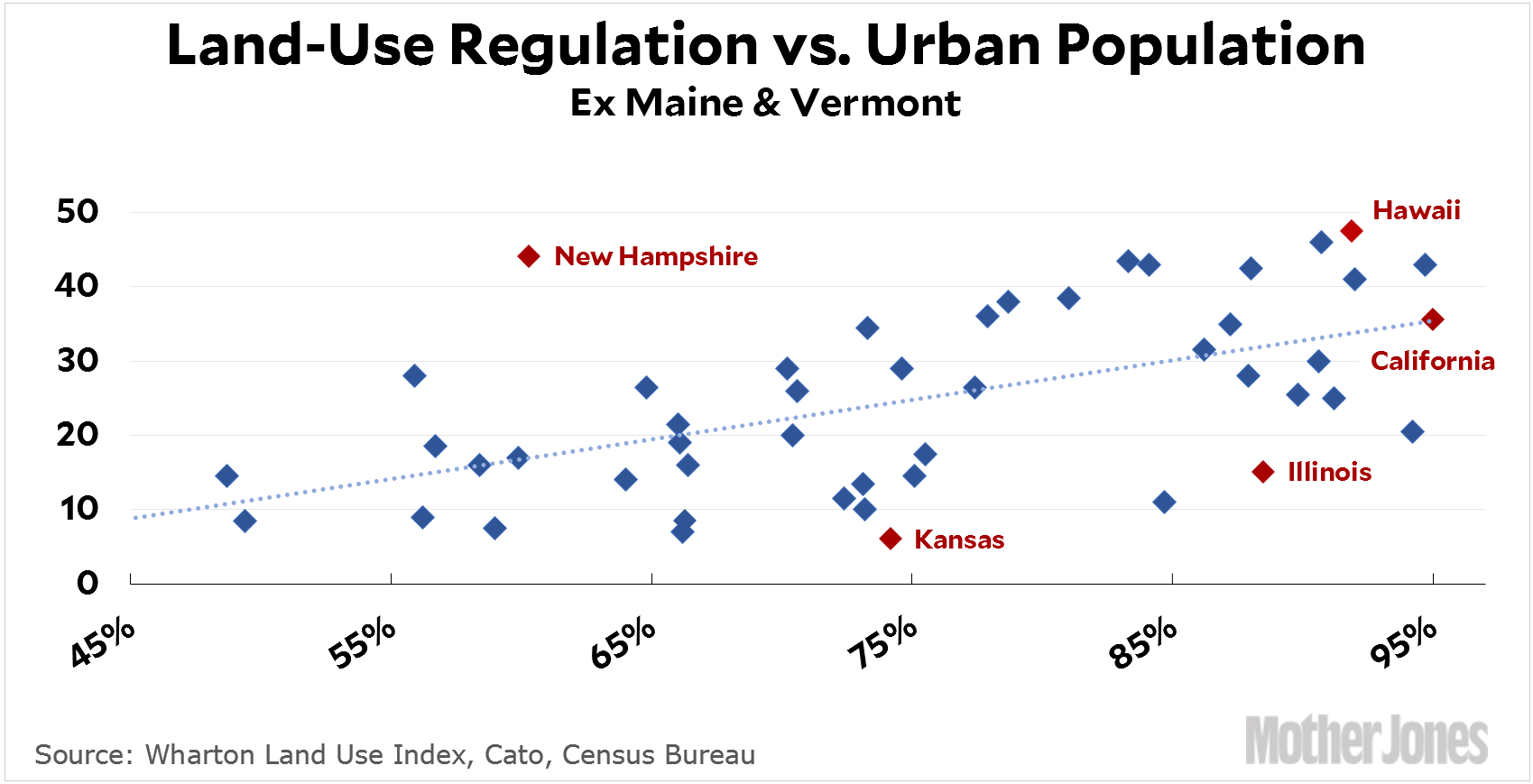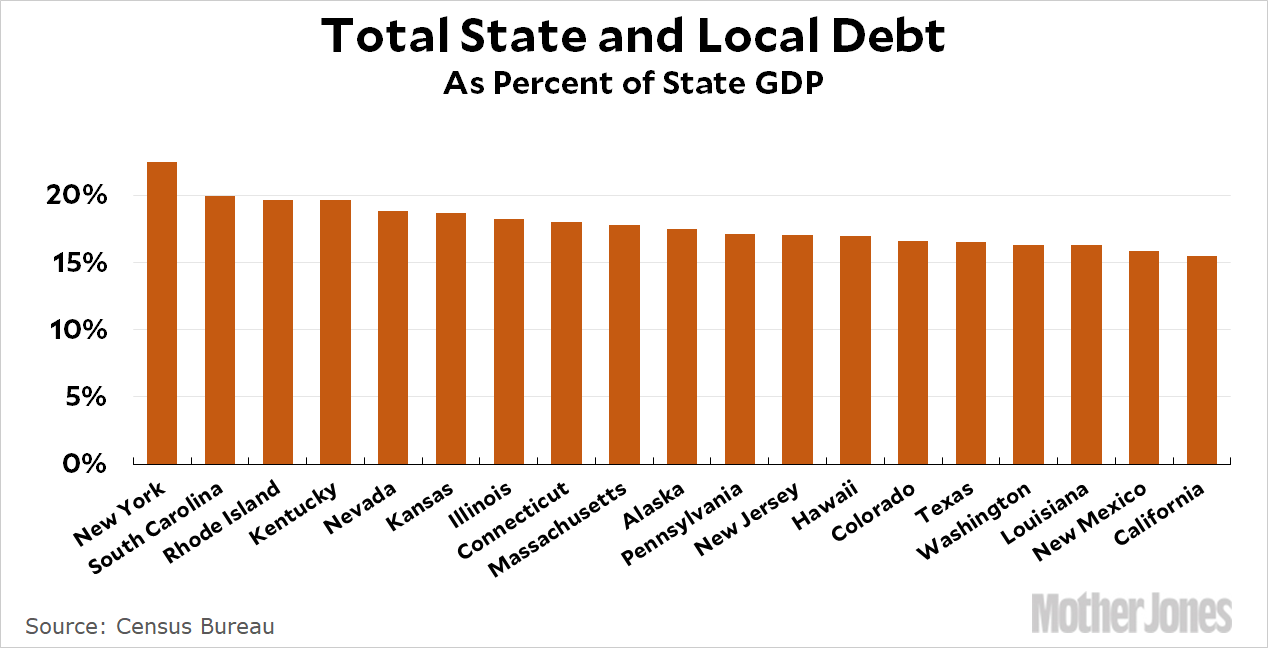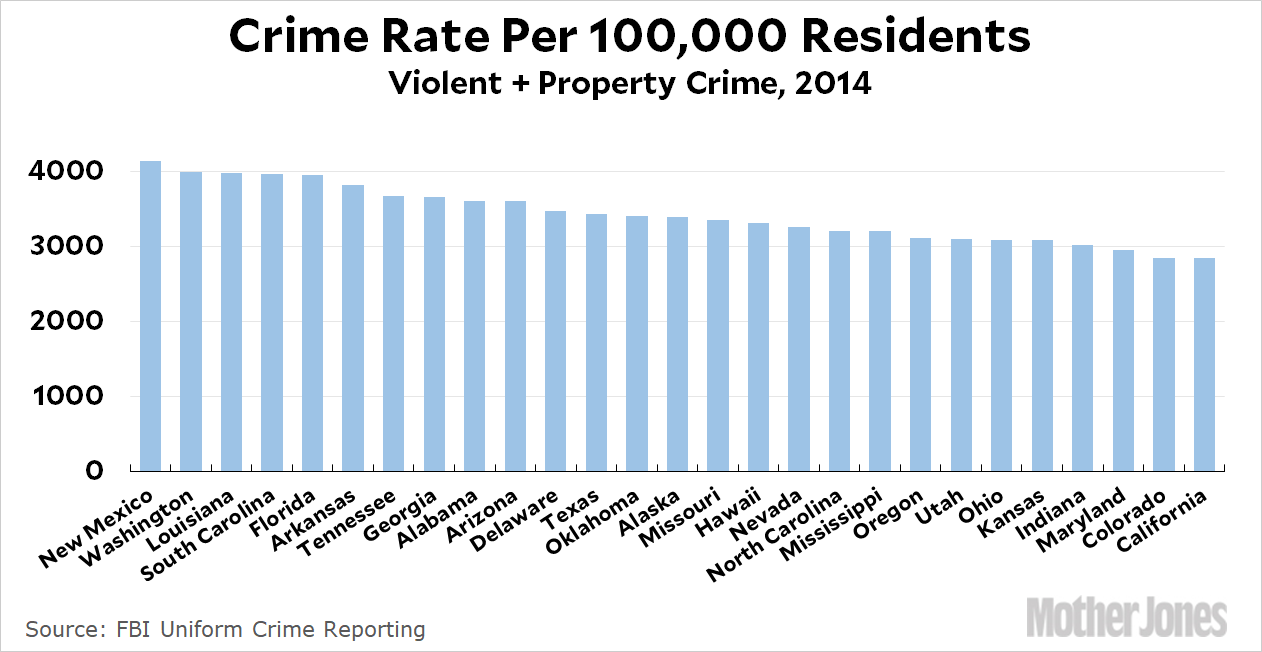Earlier today I posted a bunch of charts about California. This was in response to a Kerry Jackson piece in the LA Times arguing that California was screwed up six ways from Sunday, none of which was true. But one thing he mentioned was intrusive land-use regulations. I didn’t bother with that one because I couldn’t figure out how to measure it. Over lunch, however, it kept rolling around in the back of my head, so I took a crack at it when I got back home.
There’s no single metric for this, so I looked around for state rankings based on a basket of measurements. I found two that looked promising: one from the Cato Institute and the other from a set of researchers at Wharton. Unfortunately, they differed wildly, which is a good reason to think this whole task is basically hopeless. But this is a blog, so why not just average the rankings and use that? Good enough.
Now, as everyone recognizes, cities have more stringent land-use regulations than rural areas. This is not unique to California, so I went ahead and plotted land-use rankings vs. percent of urban population to see where California fit. Here it is:

Maine and Vermont were weird outliers, so I excluded them. It didn’t really change anything, but it makes the chart easier to read. Basically, states above the trendline have tougher land-use regulations than you’d expect based on how urban they are. New Hampshire and Hawaii are in this category. States below the trendline have relatively lax land-use regs. Kansas and Illinois are in this bucket. And California? It has fairly stringent land-use regs, but that’s because it’s 95 percent urban. It’s smack on the trendline, which means it’s dead average. There’s nothing out of the ordinary here.
It’s worth noting that the rankings of land-use regs are highly debatable, and I’m regressing a continuous value against a ranking, which is a statistical no-no. That said, this probably provides a quick-and-dirty rough sense of where things stand. California just doesn’t appear to be anything other than average on this score.
I also got a couple of requests. A conservative wanted me to show California’s debt. Here it is:

California ranks 19th, and that’s only because I included local debt. If you look solely at state debt, California ranks 28th. So there’s nothing out of the ordinary here either.
Another reader wanted to know about crime rates. No problem:

California ranks 27th in overall crime rate—despite the fact that it’s a highly urban state. It’s 17th in violent crime and 29th in property crime.
On all of these metrics, California appears to be dead average. Haters gonna hate, and I don’t doubt that you can find plenty of measures that California does poorly on. Basically, though, California is a liberal, high-tax, high service state with strong environmental regulations, and it nonetheless has a strong economy and pretty average rankings on most economic and social measures. This is annoying to conservatives, but there you have it.


















